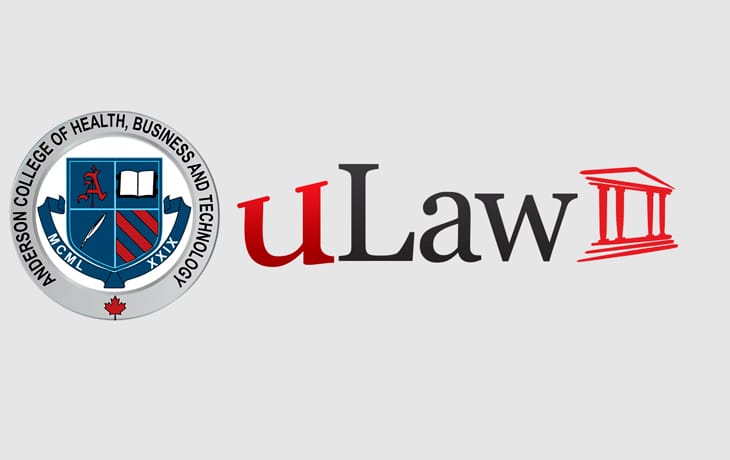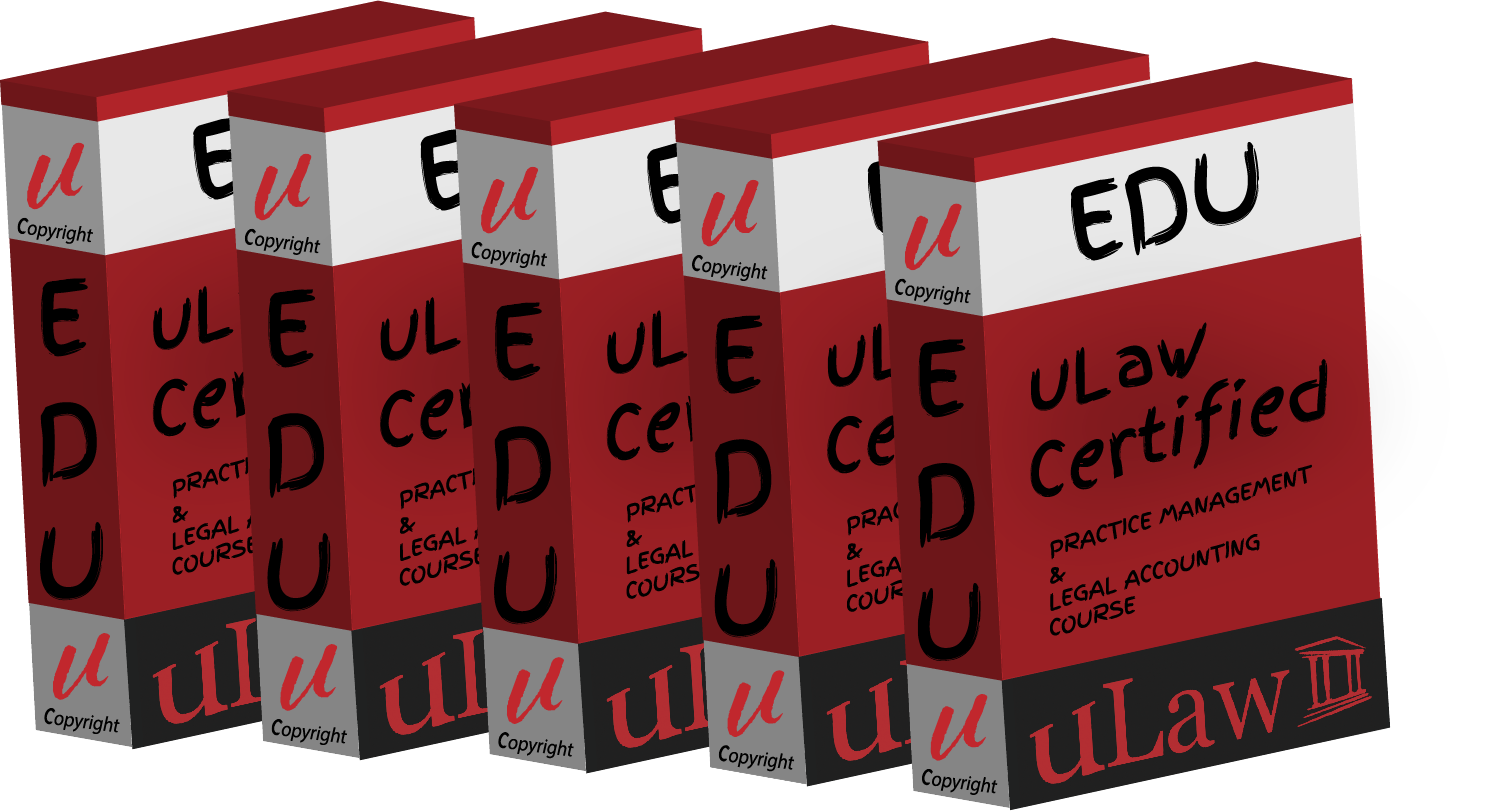uLawPractice partners with Anderson College

Anderson College partners with uLaw EDU for Law Clerk, Paralegal programs
March-06 2024 - OTTAWA
As of the 2023 Autumn academic year, paralegal and law clerk students at four Anderson College campuses are gaining hands-on experience with uLawPractice as part of the curriculum.
When it comes time for students to conduct important bookkeeping and accounting modules, they will be accessing uLaw EDU’s cloud program for students.
“A modern legal education curriculum involves learning the actual business and compliance activities that a majority of lawyers and paralegals need to conduct on a near-daily basis,” says uLaw CEO Terry Curtis. “With uLaw EDU in particular, instructors at Anderson will be training students with Canada’s most trusted automated legal accounting and practice management software today.”
Since 2011, the company boasts: not a single law firm using uLawPractice has failed a practice audit. Some of the most important components of handling a law firm’s finances are being taught by Anderson, and with uLaw, students will graduate with a uLaw technical certificate, indicating they have proven knowledge of what it takes to run a legal business.
In Summer 2023 a rigorous standardization review was conducted by Anderson College, where program administrators and board members observed technical requirements and details before approving uLawPractice EDU’s Enhanced Academic integrity license for use in the curriculum. For the 2024 calendar year, students enrolled in these programs can expect to get experience using uLaw.
“Integrating uLawPractice software into our paralegal curriculum is a powerful addition to our current program, one that will enhance students’ experience and bolster their credibility as they pursue career opportunities,” offers Ian Bell, Program Coordinator, Paralegal, Anderson College. “By adopting uLawPractice we’re providing students with a tremendous opportunity to gain vital hands-on experience in legal practice management and accounting, crucial skills in the legal profession.
“uLaw’s Enhanced Academic Integrity program, designed for academic settings, simulates real-life work environments. Evidenced by the name, this approach promotes an immersive learning experience whilst safeguarding academic integrity. It prepares students for the professional world in an engaging and effective way."
“One of the standout features of uLawPractice is its cloud-based nature, allowing students the flexibility to access coursework and engage in legal management tasks from anywhere. This accessibility is essential, especially in today's educational landscape, where students can access the software on their computers in the classroom, at home, and even on their phones and tablets.
“Ultimately, our goal is to bridge the gap between theoretical knowledge and practical application. By incorporating uLawPractice into the Anderson College curriculum, we're not just enhancing the learning experience for our paralegal students; we're preparing them for the demands of the legal profession, giving them superior confidence and ensuring they have a significant advantage in a competitive job market,” says Bell.
Anderson College is one of Canada's oldest colleges, having opened its first location in 1885. Anderson has trained more than 100,000 students over its 139-year history and continues to be an empowering partner for students overcoming career challenges and transitioning to the next phase of their lives. With ten locations in Ontario and one in British Columbia, it is recognized for its high-calibre faculty, hands-on, real-life career training, and supportive culture.
In the field of Law, Anderson College offers Paralegal and Law Clerk programs. The objective of the Paralegal Diploma program is to provide students with the required substantive law training to successfully enter the Law Society of Ontario’s paralegal licensing process. Students will learn constitutional and administrative law, client interviewing, legal research, evidence, small claims court, provincial offenses, legal writing, dispute resolution and mediation, legal computer applications, tribunals, immigration law, and landlord and tenant law. All law courses are taught by lawyers or licensed paralegals.
Anderson’s Law Clerk diploma program is comprehensive, utilizing current and up-to-date course content, delivered by industry-expert instructors. Providing both in-class education and theoretical knowledge and practical, real-work training, Anderson prepares students for the challenges and rewards of being a legal assistant. They will learn from real-life cases with court visits and from case studies, ensuring they are capable and confident to embrace their new profession upon graduation.
For more information on the Paralegal and Law Clerk programs or to learn about Anderson, visit www.andersoncollege.com.
uLaw EDU’s “Enhanced Integrity” package was recently made available for Anderson College students through the Campus E-Bookstore. Students are able to purchase and acquire individualized accounts so they can conduct exercises on their own, to later be marked by instructors at the college.

In 2019 uLawPractice invested heavily into the creation of a separate EDU infrastructure for Canadian law and paralegal schools. To keep up with increased demand spurred by the pandemic, uLaw expanded its offerings to post secondary institutions. uLaw’s self-managed academic access EDU program, by far the most popular, is free to use. Through this model, groups of students can be formed into mock law/paralegal firms, where they can conduct cloud-based bookkeeping and accounting activities assigned by their teachers, in a manner that mimics the daily operations of a mid-sized law firm.
Also available is uLaw’s Enhanced Integrity Academic Access program. This package, chosen by schools such as Anderson College,, is the preferred choice for institutions wishing to ensure maximal academic integrity among students, who each have access to their own accounts.

“When exercises are completed with the use of uLaw Enhanced Integrity, students are operating entirely within their own environment: there is no group work to be done, and is therefore more secure,” says Curtis.
Academic institutions may learn more about uLawPractice EDU by visiting this link
